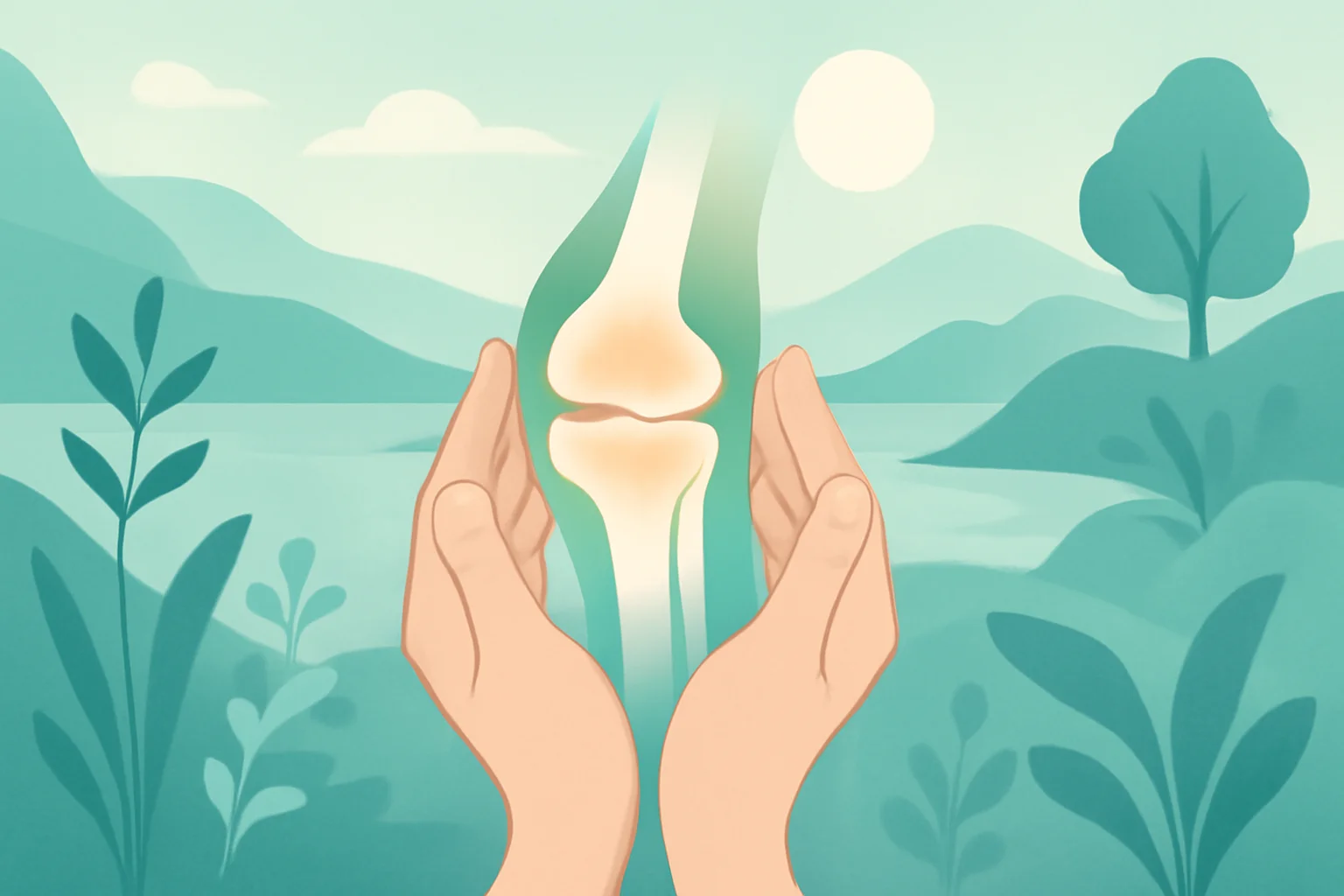
Why do my joints hurt and how can I relieve the pain?
A pain in the joints can significantly affect many people’s lives and is often attributed to various causes. Joint pain can be acute or chronic, influenced by numerous factors such as age, lifestyle, diet, and physical activity. Our joints are constantly at work, as they are subjected to stress during exercise, daily activities, and even while sleeping. As we age, the flexibility of our joints decreases, and pain often arises.
The pain may stem from inflammation, injury, degenerative changes, or even autoimmune diseases. Joint pain can impact the quality of daily life, as it often limits movement and the ability to perform usual activities. For many, the first step in managing pain is understanding: it is important to know what causes the pain and how it can be alleviated. Proper nutrition, an active lifestyle, and stress management can all contribute to maintaining joint health.
The Causes of Joint Pain
Joint pain can be attributed to various causes, and understanding these causes can help in selecting the appropriate treatment. One of the most common causes is inflammation, which can be acute or chronic. Acute inflammation usually results from injuries, infections, or arthritis, while chronic inflammation is a long-term condition often associated with autoimmune diseases such as rheumatoid arthritis.
Degenerative changes, such as osteoarthritis, are also common causes of joint pain. This condition arises from the gradual loss of cushioning tissue between bones due to cartilage degradation. At this point, bones begin to rub against each other, causing pain and stiffness.
Injuries, such as sprains or fractures, can also cause pain in the joints. These often present with sudden pain and may sometimes result in swelling or bruising. Additionally, excessive strain, such as from sports or physical labor, can also lead to pain.
Nutrition plays a significant role in the development of joint pain. For example, obesity places extra stress on joints, particularly the knees and hips, which exacerbates pain. Furthermore, the consumption of inflammatory foods, such as refined sugars, processed foods, and trans fats, can also contribute to inflammatory processes.
Preventing Pain
To prevent joint pain, it is essential to adopt a conscious lifestyle. Healthy eating is one of the most important steps, which includes consuming anti-inflammatory foods. Vegetables, fruits, olive oil, fish, and nuts can all help protect the joints. Proper hydration is also crucial, as water aids in cartilage formation and the transport of nutrients to the joints.
Regular exercise is also important for maintaining joint health. Low-intensity activities, such as walking, swimming, or cycling, help strengthen muscles, improve mobility, and reduce the risk of pain. Strength training is also beneficial, as strengthening muscles reduces pressure on the joints.
Moreover, managing stress is vital, as stress can contribute to increased inflammation. Relaxation techniques such as meditation, breathing exercises, or yoga can help lower stress levels, thereby contributing to joint health.
Adequate sleep is also essential, as the body regenerates during rest, which is particularly important for the joints. During sleep, the body repairs tissues and helps reduce inflammation.
Treatment Options
If joint pain has already appeared, several treatment options are available. The first step is usually a medical diagnosis that helps understand the cause of the pain. Treatment options include medications, physical therapy, alternative treatments, and surgical interventions.
Pain relievers and anti-inflammatories are the most common medications that a doctor may prescribe. These can help reduce pain and inflammation; however, it is important not to use them long-term without medical supervision.
Physical therapy can also be beneficial, as professionals can create a personalized exercise plan that helps improve movement and reduce pain. Physical therapy treatments may include manual therapy, electrotherapy, or even heat and cold therapy.
Alternative treatments, such as acupuncture, massage, or various dietary supplements (like glucosamine and chondroitin), can also help alleviate joint pain. However, their effectiveness may vary from person to person, so consulting a professional is essential.
Surgical intervention may be necessary if pain does not respond to other treatment methods or if severe joint changes are present. Surgical options may include cartilage replacement, joint stabilization, or even total joint replacement.
When dealing with pain, the most important thing is to always consult a doctor and pay attention to the signals from your own body.
**Warning:** This article does not constitute medical advice. Always consult a doctor for health issues.

